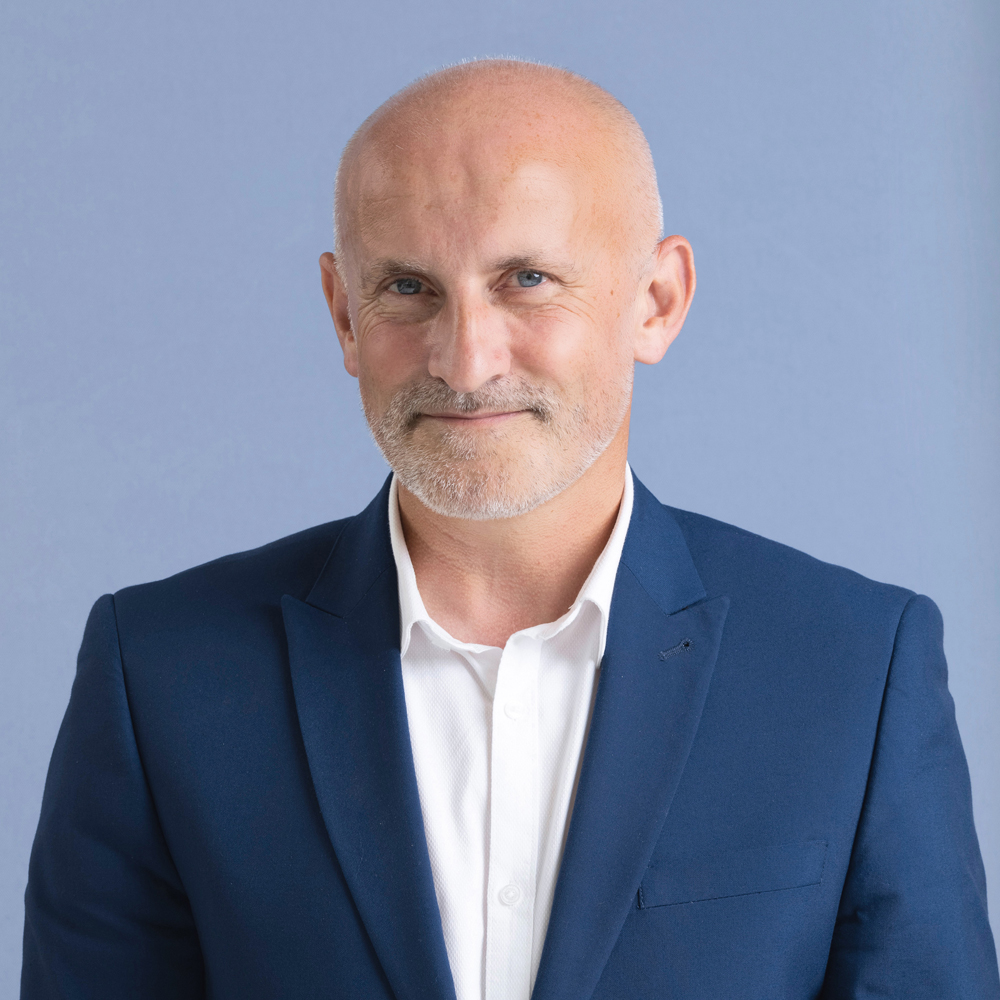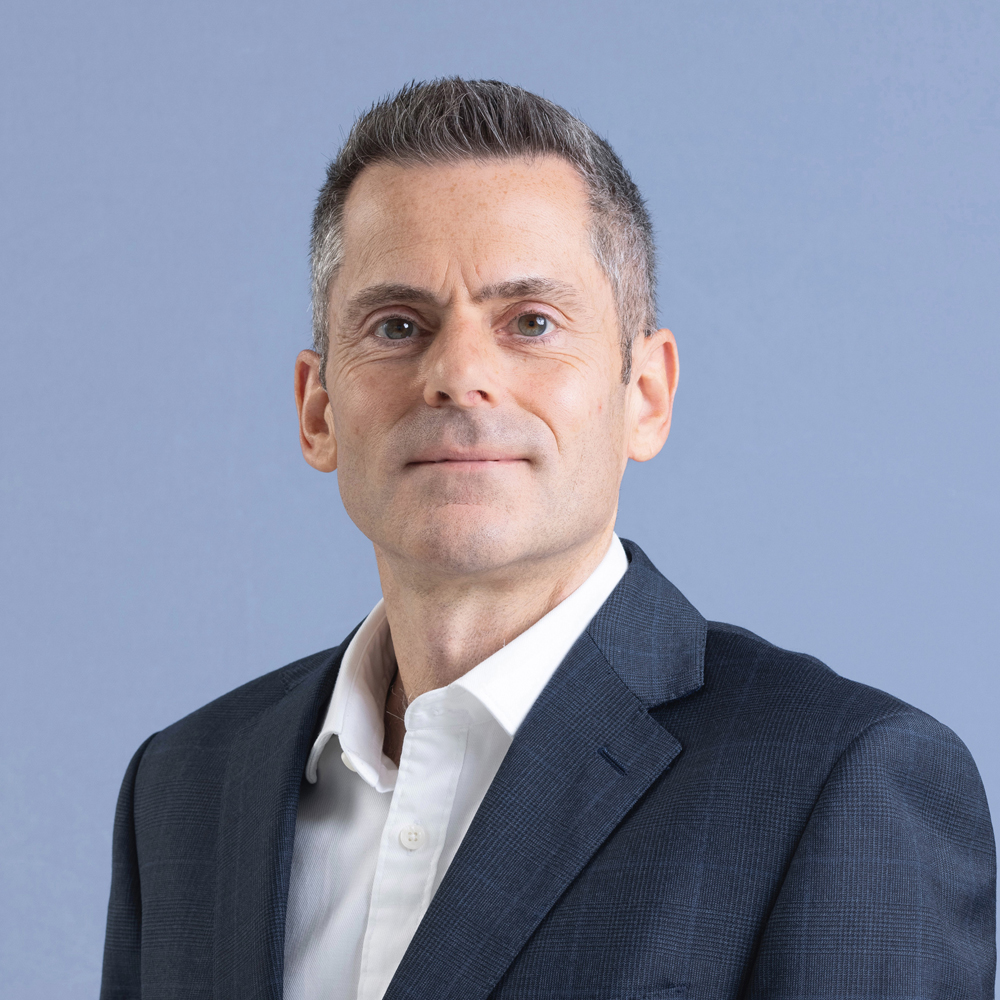AM Best reports that premiums written by Managing General Agents (MGAs) stood at US$60 billion in 2021, up from US$51 billion in 2020 – record growth fuelled by technology and talent, according to the ratings agency, and reflecting the vital role that MGAs play in matching risks and insurers.
We couldn’t agree more – in fact the demand we have seen for MGA incubation in 2022 has exceeded what we saw in 2021, so we wouldn’t be at all surprised if another record-breaking year is reported for MGA premium growth in 2022 as well.
And the overall premium figure written by MGAs for insurers is in fact likely to be larger still – as AM Best notes: “the actual premium produced by MGAs is more than US$60 billion since insurers report only MGAs that generate premiums greater than the 5% surplus; there may be a number of MGAs whose premiums have not been captured because of the 5% threshold.”
By AM Best’s estimates, the premium generated through the MGA market has doubled over the past decade. It is a significant global growth market that Pro MGA Global Solutions is proud to be at the forefront of supporting.
It’s clearly been a busy year, defined by a focus on multi-territory strategies, matching risk appetite with MGA partners, talent acquisition and technology. And these themes will continue to shape the market for the rest of this year and into 2023.
MGAs attract talented entrepreneurs
The migration of talent to the MGA sector also continues apace, with entrepreneurial underwriters seeking flexible working environments matched with the most innovative technology available to harness their skills where they can bring most value.
The MGA teams we work with are ambitious and forward-thinking, and want to work in an environment where good ideas flourish quickly. We think the attractiveness of the MGA sector to this type of personality will only continue to grow in the future, and our pipeline of opportunities and enquiries reflects this forecast.
Going into 2023, we also anticipate negotiating different global regulatory frameworks will be a challenge for MGAs, placing focus on oversight frameworks that meet, if not exceed, regulatory requirements in every territory in which they operate.

MGAs as fronting partners
The growth of MGAs working with fronting partners for reinsurers is also set to continue – in many ways this is an ideal partnership if the strategy is right, with total direct premiums written by the top US 17 fronting companies increasing by 45.3% to almost US$9 billion in 2021, according to Conning in a recent report.
Reinsurers are hungry for innovation as well as a closer and more data-driven relationship with customers. For this growth to continue, however, it is critical of course that the interests of MGAs and their capacity providers are aligned.
For the re/insurance sector as a whole, inflation is also bearing its teeth and will impact pricing models and expansion strategies. However, since MGAs effectively operate like insurance companies without a balance sheet, they are able to react quickly to changes in strategy, as long as their capacity partners are the right match.
With claims inflation forecast across classes – particularly motor insurance – those MGAs offering in-house claims management services are likely to be in demand, particularly if they can demonstrate a proactive approach and also the application of technology such as fraud detection.
A diverse global sector
As an MGA incubator platform, Pro MGA Global Solutions works closely with a diverse range of clients globally, supporting their transition from a conceptual idea to a fully operational business through compliance and operational support.
Working with such ambitious entrepreneurs is always interesting, and we now support over 40 MGAs across the UK, the EU and North America with US$650 million of gross written premium currently under management across 29 classes of business.
Based upon early forecasts of organic growth within our existing client base, we expect GWP under management to exceed US$800 million in the coming years and could, subject to timings relating to our further expansion and growth plans touch US$1 billion.

Name: Shaun Linton
Job title: Head of Operations, Pro MGA Global Solutions
To speak to the Pro Global team please feel free to reach out to us at:

To contact our PR team directly please use the link below
We interrupted a busy day to pick Shayne’s brain about how things have changed over his tenure in the industry, and what he thinks will shape things to come. Here’s what he said:
How has the re/insurance sector changed over the past 25 years, what lessons could be applied in hindsight?
Pro has continued to adapt and evolve with changing customer needs and it’s been really impressive to see. As the saying goes – the key to longevity is adaptability, and perhaps that applies to both myself and to Pro, to the extent we’ve both kept pace with the change in the market and been able to respond and in many ways stay ahead of the curve.
Pro Global has developed from a pure run-off management provider, to introducing live market processing services and now into our current form of being a strategic outsourcing partner and trusted advisor across the global re/insurance marketplace.
Yet, we’ve stayed true to our roots throughout in terms of applying hands-on expertise where it matters most, and advising and guiding our clients in best practice as they develop their operations, particularly through periods of change and consolidation or growth.
The ongoing digital transformation of the market – from initiatives like electronic placement to the embracing of hybrid working through the enforced change brought about by the COVID-19 pandemic – has been exciting to be part of.
That said, while we have made great progress from a digital perspective, I’d say the global re/insurance market is now very technically sophisticated, but is still catching up from a technology perspective compared to other industries.
Companies have been cautious in embracing technology that can make real efficiency and process improvements, and there is a way to go with this. In hindsight the digital transformation of the global re/insurance market could have started much earlier, in line with the neo banking model that we’ve seen emerge so successfully.
Nevertheless, I’ve also seen first-hand how our industry has responded and supported global issues such as the 911 terrorist attacks, Hurricane Katrina, the 2007 stock market crash, and more recently the global COVID pandemic, and the ongoing war in Ukraine and energy crisis. I think the speed of response and the genuine feeling of wanting to help has been heart-warming, and the industry has learnt so much and improved in its responses with each event.
Another really positive and important change I’ve seen is how Pro Global and the wider sector have embraced diversity and inclusion as key values of our industry. It’s such a core issue, as is working with younger demographics and refining and upholding professional standards at all times. I’m proud to work at a business that embraces change like this.
What’s your favourite part about working at Pro Global?
I’d have to say it’s the variety of work and the people you meet, both within Pro Global and out and about in the market. I’ve been with Pro for 26 years, when I tell people that, their jaw normally drops for reasons ranging from admiration to astonishment.
It seems that degree of longevity in one organisation has become increasingly rare. However, there are several of us at Pro who are now beyond 20 years’ service and there’s a few reasons for that. Firstly the variety of the roles I’ve had, through either opportunity and design, I have never really had the same role for more than five years, maybe seven at most.
This has given me a broad understanding of our marketplace, from cutting my teeth supporting the Aon Aviation broking team in the late 90’s, working with KPMG and PWC on large run off portfolios, buying the rights to insolvent debts through our Debt Purchase vehicle and on to Operational Leadership for our live market clients.
No two jobs are really the same and it’s led me to work on many interesting projects with some fantastic individuals across a broad spectrum of our market, many of whom have gone on to become good friends.

What do you think the biggest challenges facing insurance services clients are as we head into 2023?
The difficult employment market and loss of experience across the sector at the moment is one of the more immediate operational concerns from the people we talk to. It has a knock on effect when trying to create Operational Resilience and can be a setback to Continuous Improvement initiatives.
At the same time, inflation and the impact it’s having on overheads and the challenge of if and how the extra costs should affect premium are of strategic concern. I expect this to continue at least into next year as we grapple with a deteriorating economic environment.
Beyond this in the last year at an operations level our clients are having to increase management and reporting time responding to events in Ukraine, Lloyds Blueprint 2 developments as well as (where they can) implementing automation and process improvement. All of this while trying to ensure business as usual (BAU) is running as smoothly as possible.
In short what we are seeing is a perfect storm of substantial additional non BAU activity meeting a talent shortage. In response, more of our clients are turning to us to support their operations during peak or surge times, when they have a vacancy or project instead of filling the position themselves.
It generally proves to be a more cost effective option as it saves on recruitment, training and management overheads and allows a client’s internal operations team to prioritise other tasks.
What are the biggest opportunities?
For our clients, the potential for automation of data processing through RPA and IP between systems to significantly improve processing times, reduce re-keying and increase data quality is a clear opportunity.
The end result is tangible improvements to financial and regulatory reporting, supporting more accurate underwriting decisions and reducing the impact of the current challenging employment market. Pro Global continues to operate at the frontline of this space, working strategically with clients and tech partners to provide a managed service and implement use cases that could pave the way for widespread adoption.
Another area of opportunity for our clients is consolidation into profitable lines of business and exiting the non-profitable. The surplus of available capital and a strong range of acquirers are making the disposing of run-off portfolios a far more achievable and value-aligned option.
Increasingly carriers and acquirers are taking a partnership approach with tactical, multiple transactions between the same parties complimenting a broader strategic outlook to the disposal of discontinued lines.
What will the (re)insurance market look like in another 10 years?
I think in terms of the business entities in the market we will continue to see consolidation, either through pure M&A or through portfolio transfers – either live or in run-off. We are already seeing a high level of desire for the disposal of prior years of account which in turn is aligned with a swell of capital and willing acquirers.
It makes sense therefore that a carrier’s resources, financial and people, are deployed into concentrating on profitable lines of business, and the data rich environment that we now enjoy is helping insurers to delve deeper than ever before into the analytics of their underwriting profitability and respond accordingly.
So much of the digital transformation we have seen take off over recent years has a huge scope to progress in terms of systems consolidation and integration, and more aligned operating models through innovation programmes like Lloyd’s Blueprint 2 (LB2).
Technology is moving at such a pace, I think the future will see much more of a collaboration between human expertise where it is needed the most, supported by highly efficient and intuitive technology.
This will only serve to bring opportunity for greater fulfilment in peoples’ careers as any human input is likely to be in more technically complex, person to person, and creative scenarios where human input brings the most value.
This will have a knock on effect on operational resilience and how this will impact upon a company’s structure. I’m really interested to see where the evolution of “continuous improvement”, LB2, consolidation and technology takes us in this respect.
Ultimately the Lloyd’s and London Market has survived for so long because it is adaptable, nimble and able to respond to what society needs, and because the market exists to solve the most challenging insurance problems faced by society. I see no signs of this important role becoming obsolete in the next ten years!

Name: Shayne Caple
Job title: Head of Underwriting Services
To speak to the Pro Global team please feel free to reach out to us at:

To contact our PR team directly please use the link below
There have been a number of positive developments since our last update on immunotherapy research for treating mesothelioma, and the potential impact on asbestos related legacy claims.
More treatments for mesothelioma have become available in the UK via the National Health Service – this is encouraging news for victims who should now find it easier and quicker to access such treatment assuming it is suitable for them and recommended by the Oncologist.
For liability carriers, this should also have a positive impact on private treatment claims propensity and cost.
Background
Immunotherapy, as a treatment for Mesothelioma first began appearing as part of damages claims in 2015/6 and has continued since. Immunotherapy treatments are intended to assist the body’s own immune system in destroying cancerous cells by making such cells more “visible” and easier to attack.
A claimant’s right to seek privately funded treatment over that which might be provided by the NHS is uncontroversial but sometimes complex and not without risk if access to civil compensation remains in doubt at the point the financial outlay must be incurred.
Providing the specific treatment options are available through the NHS, it is sometimes quicker and more easily combined with other more traditional treatments the NHS delivers.
The National Institute for Care Excellence (NICE) has recently recommended the use of two immunotherapy drugs, Nivolumab and Ipilimumab, in England and Wales as a combination first line treatment option.
NICE had previously approved the use of Nivolumab on a temporary basis but:
In Scotland, the Scottish Medicines Consortium acted slightly more quickly and approved the use of this combination treatment in February 2022.
Implications for insurers
Any carrier with an exposure to historic UK liability covers attracting asbestos related Mesothelioma claims will have experience of victims seeking funding for the cost of various emerging treatment options designed to either:
The scenario of having more immunotherapy treatment options available is likely to be repeated as advances in research produce new treatment options, their efficacy is evaluated, and NICE considers whether they might offer better outcomes for patients than that currently in place.
However, insurers should note that all victims of Mesothelioma have the right to seek privately funded treatment even if NHS treatment is comparable/ better and even faster.
As we previously noted, various funding mechanisms are in place to help mitigate claimants’ legal expenses whilst ensuring those who wish to can access treatment privately. Insurers should be aware of these to help claimants’ experience and access to the most effective treatment be as timely, efficient and cost-effective as possible.
Please get in touch with the experts at Pro for more information.

Name: Steve Bellingham
Job title: Head of Strategy Disease & Injury
To speak to the Pro Global team please feel free to reach out to us at:

To contact our PR team directly please use the link below
Shared with the kind permission of Insurance Business UK.
——————————–
You can’t have sunshine without a little rain, as the old song goes – and Danny Maleary, CEO of Pro MGA Solutions, can attest that the saying holds true for the MGA market. As an MGA incubator platform, Pro MGA Solutions works closely with a diverse range of clients, supporting their transition from a conceptual idea to a fully operational business.
But in addition to the time spent curating the evolution of its internationally-spread existing client base, the team is also kept busy finding new opportunities to nurture innovative, entrepreneurially-minded firms. Pro MGA Solutions has taken on an additional 12 clients this year, he said, and now supports 41 MGAs across the UK, the EU and North America.
Read more: New MGA incubator platform rolled out for insurance entrepreneurs
“We’ve got $650 million of gross written premium currently under management based on their forecasted projections for 2022,” he said. “We’ve got 29 classes of business, representing a good blend of insurance, reinsurance, insurtechs, traditional quality underwriting MGAs and a few consumer propositions. So, we’ve got a nice blend in terms of our client matrix, which has been quite healthy.
“And what’s underpinning a lot of that is the continued rollout of our multi-territorial strategy [in line] with our desire to have a number of strategically placed MGA incubation models scattered around the globe. So, that’s Europe, the UK, the US and we’re just about to launch in Asia with a partner and our first MGA, and we’re also looking at LATAM as well. That’s in addition to spreading out a bit more in Europe – with a move into Southern Europe as well.”
Working across so many different classes of business and locations has given Maleary a keen insight into the challenges pressing on the MGA market and he noted that top of the agenda for MGAs remains the question of securing risk capital. Finding the right risk capital partner is the biggest challenge across all classes and territories right now, he said – and several factors go into determining the right partnership, including an aligned approach and vision, and a longer-term approach to success.
Read more: Pro MGA Solutions CEO on the future of MGAs
Meanwhile, while the regulatory framework has become slightly tougher, for businesses that are structured accordingly it’s a case of following the process. This is where Pro MGA Solutions’ offering really comes into its own, he said, as the team has spent significant time ensuring its oversight frameworks are robust and meet, if not exceed, regulatory requirements in every territory in which they operate.
“As to how the high inflation environment is impacting MGA development and scaling, a lot of that is happening around the investment side and the working capital element of it more than anything else,” he said. “[It’s] around the control of costs and ensuring that costs are not spiralling out of control in terms of whether that’s general salaries or general servicing fees, or costs for IT and technology.
“I think a lot of it hasn’t really hit home yet. And I think we’ll probably find as we come through the remainder of 22 into 23, what we’ve all been experiencing around inflation will start to bite and there’ll be more focus around cost management and more focus on embracing things that will help to streamline that.”
It will be interesting to see what happens on the investment side of things, Maleary said, as the current lay of the investment landscape depicts a positive outlook for MGAs. He is seeing this environment as extremely robust in terms of entities looking to invest in MGAs in multiple ways – whether that’s angel investors, private equity, venture capital, or institutional investors.
“There still seems to be some significant options out there,” he said. “But as we go through the remainder of this year and into next, we’ll just have to wait with bated breath to see how that’s impacted because of what’s going on in the world around inflation.”
As it stands, Maleary said, the appetite of risk capital partners to embrace the MGA route to market is a real opportunity. He has seen a “significant increase” in the opportunities available for MGAs to partner with risk capital partners which are really thinking about their own growth strategies and who understand that the MGA proposition is a key part of that.
Read more: Pro MGA Solutions CEO discusses the evolution of the MGA sector
“Despite what you might call hard markets in some areas,” he said, “I’m still seeing strategic relationships being built with a number of MGAs during that hard cycle, which I think is good and robust and a healthy thing for a risk capital partner to do. I’m seeing that with more partnerships wanting to be created, not just between the MGA and the insurer, but also the reinsurer.
“I’ve seen quite a lot of coming together and like-mindedness around creating a proposition that is streamlined, perhaps light-touch, cost-effective but able to deliver good, quality profitability and ultimately a good, quality service and proposition to the customer. And the MGAs that have entrepreneurial flair, that are a bit more innovative and that are happy to partner accordingly… I think, they’ve got significant opportunities to create long-term relationships.”
Pro MGA Solutions prides itself on taking a partnership-first approach to growth, and Maleary noted that to him a great partnership is about being aligned, transparent and trusting. With his deep-rooted history and experience in the MGA market, he is able to guide firms along every step of their strategic journey, he said, and offer real guidance on what they should be looking for as they shape their medium-to-long term vision.
Critical to his team’s approach, he said, is finding the right MGAs to partner with and while Pro MGA Solutions is designed in such a way as to be everything to everyone, the company has a careful selection process. That’s of paramount importance as it keeps that partnership-first approach front-of-mind throughout the entirety of the relationship – and it’s a model that has worked very successfully to date.
“We’ve had a busy 2022 already but we’ve a few more things to do in the remainder of the year,” he said. “We’ve got a bit more strategic growth to do, a bit more positioning as we go into 23. We’ll probably have a few more clients come on board, I anticipate we’ll end up securing 15 clients in total for the whole of 22, which is a similar number to 21. So, we have a very healthy pipeline reflecting that this is a very healthy market when it comes to the world of the managing general agent.”
—————-
The original article can be accessed here

Name: Danny Maleary
Job title: CEO, Pro MGA Global Solutions
To speak to the Pro Global team please feel free to reach out to us at:

To contact our PR team directly please use the link below
Shared with the kind permission of the Intelligent Insurer.
Insurers can expand their product ranges in Latin America as customers become more risk-aware, according to Valentina Garcia, Swiss Re’s senior client manager for reinsurance in the region.
Garcia said Swiss Re had recently issued a survey to Latin America consumers which showed the raised awareness. Garcia, speaking on an Intelligent Insurer panel titled “Land of opportunity: Why Latin America presents such an opportunity for growth”, outlined how she saw Latin America developing in the next five to 10 years.
“We issued a consumer survey after the COVID-19 pandemic. For this edition, the third, we included Mexico and Brazil and we received some quite interesting insights, mostly on customer behaviour.
“Part of it, of course, is that people are more aware about their health. They’re more willing to take checkups to see how to cover their physical and mental health. That’s a huge opportunity for us as insurers, because people are becoming truly risk-aware,” she said.
“This happened similarly in Mexico when we had the last big earthquake in 2017. After the earthquake everyone was interested in earthquake insurance. Now with COVID-19, health is like that—a topic that is in everyone’s minds. It also gives us a huge opportunity to close the protection gap in the life and health area, which is quite relevant because it’s super costly to government.”
As well as health and life, non-tangible products such as cyber and directors and officers are developing well in Latin America, said Nicolau Daudt, chief executive of Latin America at brokerage firm Oneglobal Broking.
He said that surety products were now being sold in Latin America. “We are taking a product that used to be a bank product into insurance. As the insurance market develops, we expect to see other lines of product that are more finance-related,” he said.
Martin Smith, director of Latin America at Pro Global, believes that in the future consumers will need better education on products and services.
“Many countries have policies that are very basic, or the coverage is pretty basic. People don’t really know what they’re getting. We need to educate on different niches, and different coverages. The population is growing; the markets are growing and maturing slowly, but maturing more and more.”
Data opportunity
There was agreement around the table that exploiting data was important for the future of the region.
Companies featured on the discussion panel were working hard at harvesting and analysing data to benefit customers in the region.
Smith said: “Companies have a huge amount of information, but sometimes they don’t know how to use it, or they don’t use it properly. Pro in the UK has already generated some partnerships with tech companies on these subjects and we are replicating that in Latin America.”
In Argentina, clients were now using the tools generated from the partnerships, he added.
For Garcia, better data insight and understanding would improve natural catastrophe risk. She said modelling capability is improving in Latin America, which would expand the scope of insurance on weather-related perils.
“Data is super-relevant, especially in our region where the lack of standardisation in information is very different from the situation in our other regions. The US is one of the closest regions we have, we see the data they have there and it’s super-standardised. They can get insights fairly easily.
“In this region, it is not as clear or as easy to get. Now with updates in the nat cat models, and new perils becoming more relevant, the thunderstorms and floods that were before considered secondary perils are now becoming very relevant.
“If we’re willing to use the data to get more accurate modelling, that will give us more efficient use of the capital and other resources we have. In that way, we will help the region close the protection gap.”

Juan Carlos Gomez, executive vice president of BMS Re Latin America and Caribbean, agreed that the region was exposed to natural catastrophe risk. “We have a lot of work to do in that area,” he said.
A big cultural development in Latin America is more people doing activities remotely, creating insurance possibilities for the future.
Gomez said: “I see a lot of opportunities. For example, the pandemic brought that everything is remote: work, location, health, everything. This brings a new group of risks and everything related to cyber. Cyber risks are the new normal, and we have to dedicate more efforts into that space.”
Economic and political uncertainty
There was optimism about Latin America, but the region’s economic and political instability was a risk, said the panel, and it is unlikely to disappear any time soon.
“Politically and economically, some of our governments are very unstable,” said Smith.
“In Argentina, where I’m based at the moment, this is quite difficult, with high inflation and a lot of political instability. If you start looking at different countries in the region, you have some of these constant changes. But in the long run, if you’re an insurance or reinsurance company you should picture the long term, as we have lots of opportunity.”
Gomez suggested insurers could find ways to manage the risk on political instability. The big economic challenge would be around inflation.
“I feel there’s going to be an important challenge regarding inflation, because that’s going to become a real issue for re/insurance. Losses will be more expensive and people will have less money to pay for insurance. That will become an interesting challenge for the years to come,” he concluded.
To view the full panel discussion click here

Name: Martin Smith
Job title: Director, Pro Global Latin America
To speak to the Pro Global team please feel free to reach out to us at:

To contact our PR team directly please use the link below
Shared with the kind permission of the publisher.
The original article can be accessed here
——————————–
Many reinsurers across the globe increasingly have been doing business with certain select managing general agents (MGAs), seen as market innovators, by reinsuring the fronting insurers that provide the paper for MGAs to underwrite.
In recent years, it is a trend that has continued from the soft market into the current hard market—as long as the interests of MGAs and their capacity providers are aligned.
“Reinsurers have been increasingly attracted to MGAs and have found an easy means to provide support through a dramatic expansion of the fronting market,” said Conning in a recent study titled “Managing General Agents—Firing on All Cylinders.”
“Total direct premiums written by the top 17 fronting companies [in the U.S.] rose by 45.3 percent to almost $9 billion in 2021,” said the report. Owned by Markel, State National is the largest and oldest fronting company, which saw gross premiums written rise by 31 percent to $2.7 billion and fee income rise 21 percent.
The fronting market has expanded in recent years because reinsurers want to get closer to the customers and to innovators, according to Danny Maleary, chief executive officer of Pro MGA Global Solutions, a London-based MGA incubator, which is currently supporting 41 MGAs. “A lot of the MGAs are very data driven, and, obviously, reinsurance is extremely data driven, so there’s an alignment in terms of proposition.”
“The appeal of MGAs has been particularly strong for reinsurers seeking to get closer to the end client,” agreed Conning in its report. “To take one among many examples, RenaissanceRe supports a management liability offering for start-ups offered through Boost, an InsurTech firm specializing in embedded insurance products that trades as an MGA.”
Included in the category of delegated underwriting authority enterprises (DUAEs) are MGAs, managing general underwriters (MGUs) and program managers.
From a handful of companies led five years ago by State National, Conning said, there are now more than 20 fronting insurers operating in the U.S. MGA market. “Most of these are so-called hybrid fronts, retaining a share of risk (often as much as 20 percent), which serves as a further source of comfort to reinsurers,” said the report.
A fronting insurer typically only retains a very small proportion of the risk—about 20 percent or less—which makes it essential that the MGA develop a close relationship with its reinsurers, Maleary said. (The reinsurer would assume the remaining balance of the delegated authority portfolio.)
On the other hand, a traditional insurer would retain anything up to 80 percent of the MGA’s risk and then make a 20 percent quota share arrangement with its reinsurance partners, he added. However, because of the growing appetite from reinsurers who want to reinsure delegated authority business, some traditional insurers “are deciding to reduce their MGA retention level to 40 percent and reinsure 60 percent out the back.”
When reinsurers provide capacity for fronting companies, it enables them to get access to a portfolio of MGAs where there’s perhaps a greater level of diversification, which supports longer-term involvement from that reinsurer or a group of reinsurers, said Myles Gould, director, Analytics, AM Best.
Abundant Capacity
In recent years, MGAs haven’t had much difficulty accessing capacity—in both soft and hard markets. Industry practitioners say this is a change from five-plus years ago when insurers sometimes pulled capacity during hard markets because they had plenty of options for their capital deployment. And there have been other times when capacity exited markets when rates were too low.
“While we were in a soft market, there was a desire to support a broad number of MGAs in specific territories, across specific classes, and as the market started to harden, I did not see that change from a reinsurance perspective,” said Maleary.
“If anything, I saw [MGAs] becoming more sought after. While insurers were chasing those classes that were seeing rate increases, reinsurers decided it would be more beneficial for them to allocate their capital. I was also seeing insurers still supporting MGAs, but they were quota sharing a bigger proportion of the portfolio, out the back to the reinsurance market.”
“MGAs were historically most active in soft markets, when insurers were hungry for premium and turned to MGAs to develop niches that they could not readily access themselves,” the Conning report said.
“MGAs now serve as an all-weather distribution channel, as valuable to insurers in hard markets (such as we are now seeing) as in soft markets,” the report noted. “In terms of technology adoption and exploitation—particularly in rating hard-to-price risks—they have some advantages over the insurers themselves. They are not normally burdened by legacy systems and the inefficient and duplicative processes (sometimes known as tech debt) that go with these systems.”
Historically, during soft markets, insurers and reinsurers increasingly reached out to the MGAs to drum up business, to make up for those soft market conditions, commented Greg Williams, senior director at the ratings agency AM Best. However, that has changed over the past five years or so, and capacity now seeks to develop relationships with MGAs because they underwrite in specialty niches, he explained.
If MGAs are able to stay ahead of the curve and provide competitive advantage with innovation, they can keep that value-add in the chain, in all market cycles, said AM Best’s Gould.
Capacity has pulled back in some areas at some points in time for MGAs, Maleary said, but for most classes of business, if the MGA has delivered good quality results, is entrepreneurial and innovative, “then irrespective of whether it’s a soft or hard market, the MGA should be okay.”
Why would the capacity provider want to change that? he questioned.
Better Underwriting Performance
MGAs across the globe generally have better combined ratios than insurers, right across the board, according to David Howden, CEO of Howden Group, which comprises the broker Howden and DUAL, the international MGA. Howden spoke at the June conference of the Managing General Agents Association (MGAA) in London.
Over the past five years, the emergence of InsurTech MGAs, which are driven by some form of technology, such as algorithms and artificial intelligence, “have started to look at and analyze data in such a way that it is actually giving them a bit of a deeper insight into the risk they should be accepting—i.e., what’s good risk and what’s bad risk,” said Maleary.
Such models are helping to drive the better combined ratios for MGAs because they’ve got data “that’s helping them to slice and dice what’s good or bad,” he noted.
Attracting Talent
Howden discussed a number of key traits that are seen in successful MGAs: underwriting credibility (outperforming the market), being nimble, employing strong data and analytics, having alignment with their capacity providers, and talent.
MGAs have an enormous ability to attract talented underwriters who are seeking a slightly more entrepreneurial and empowered business model, Howden said.
Indeed, the Conning report suggested, the ability of the MGA model to attract talent in a post-pandemic world could have played a significant role in MGA formation in 2021, although this is hard to quantify. “[T]he more flexible business model of MGAs and, crucially, the greater sense of agency felt by people working at smaller and more nimble organizations may have contributed significantly to the allure of MGAs in competing for talent,” the report noted. (Related online article: “Are MGAs Winning the Insurance Talent War?”)
Culturally, MGAs are often attractive to the talent that traditional insurers are finding hardest to attract—including data scientists and software developers.
MGAs are much more nimble than traditional insurers, akin to a speedboat versus an oil tanker trying to change course, said Maleary.
MGAs provide a great mechanism for the industry’s entrepreneurial underwriters, who, after the pandemic, are less interested “in working for the man,” said Simon Burton, chief executive officer and chief underwriting officer for Greenlight Capital Re, in an interview.
“They’re very good at what they do. They’re super competent; they’ve got great relationships. They’ve got long track records, but they’d like to have a bit more autonomy, and, frankly, have greater participation in the profit of the business that they generate.”
“Most of MGA talent, from an underwriting perspective, is coming from large named insurers where maybe they’re No. 1 or No. 2 in line, but they want to work in a more entrepreneurial environment,” said Williams at AM Best.
Alignment of Interests
All the executives interviewed or quoted in this article mentioned “alignment” of interests as being crucial to strong, long-term relationships between MGAs and their capacity providers.
Maleary defined alignment as sharing the same vision, work ethic and approach (in terms of acquisition costs, in particular)—all helping to structure a strong commercial relationship that benefits all partners. One example, he said, would be to reward underwriters by the profitability of the portfolio.
Howden was dismissive of old preconceptions about MGAs and those insurers that are concerned about giving away their pens to MGAs. He called this type of talk “‘old hat, old thinking,’ and we need to change that.”
If MGA owners lose their capacity, they lose their business and they have no value, said Howden during his speech. “That is alignment.”
On the other hand, when a line underwriter gets told off by a CUO “for having written a crap risk—that’s not alignment,” said Howden. “And I think that message really needs to come across. MGAs are absolutely aligned to their capacity advisers and really care.”
“The MGA market has become much more professional. The talent pool is deeper; it’s more experienced. And then the insurers’ and the reinsurers’ enterprise risk management practices around audits have increased as well,” Williams explained. The rating agency has introduced a performance assessment for DUAEs to distinguish the best performing MGAs. (See related article from AM Best).
Misalignment of Interests
Burton recalled a period from a few years ago when risk capital was being undercompensated in MGA relationships—when there was a serious misalignment of interests.
He cited one example when Greenlight Re was offered three points of margin for an MGA’s business. “Frankly, three points of margin, after we overlayed our own expenses, would not even be breakeven. My response was that it simply wouldn’t work for us. But some of these deals were getting done, which wasn’t very healthy or sustainable for reinsurers or the market.”
The market was soft, and too much reinsurance capacity was chasing too little demand, Burton said, noting that ultimately, the situation caused a backlash and capacity withdrawal, including from MGAs.
“We only enter into relationships with MGAs where there’s a good alignment of interests. Put plainly, we can’t be in a situation where the reinsurance contract is a significant loser over a several year period while the MGA remains highly profitable.”
“Now it’s a matter of selecting the very best MGAs—the MGAs that are truly delivering the best value to their customers and for everybody in the value chain,” Burton said. Nowadays, when reinsurers go into a discussion with MGAs, “there’s an appreciation for the risk capital that reinsurers are bringing to the table and an understanding that there’s a fair amount of compensation that comes with that deployment of capital.”

Name: Danny Maleary
Job title: CEO, Pro MGA Global Solutions
To speak to the Pro Global team please feel free to reach out to us at:

To contact our PR team directly please use the link below

Although greater recognition of abuse issues has led to significant improvements in safeguarding and risk management, organisations and their insurers still face many historical and recent child abuse claims. They can include personal injury arising from emotional, physical and sexual abuse but all require sensitive and expert handling. It is important to ensure that any abuse cover provides specialist defence representation in the event that a claim is brought against a provider.
One of Pro’s trusted legal partners, Clyde & Co has written an excellent article Clyde & Co’s costs team achieve significant reduction in claimant’s costs : Clyde & Co (clydeco.com reporting on a child abuse claim where the issue of claimant legal costs was addressed, leading to settlement mid-way through the assessment hearing and a significant saving for clients.
Alan Metzger, Pro Global Head of Strategy for abuse claims commented: “Pro Global and our clients are committed to handling child abuse claims fairly and sensitively, with payment of appropriate compensation where liability is established. It is important that survivors receive expert legal advice through the claims process but we will robustly challenge solicitors costs where the sums claimed are unreasonable.”

Name: Alan Metzger
Job title: Head of Strategy Abuse & Care
To speak to the Pro Global team please feel free to reach out to us at:

To contact our PR team directly please use the link below
Hay muchas tareas que no hacen al core de un negocio pero que le dan sustento. No son prescindibles –alguien tiene que hacerlas– pero muchas veces agregan peso y ralentizan la operación. Las empresas que crecen en envergadura suelen desenfocar la atención de su objeto principal para atender tareas relevantes pero no centrales. El trabajo de back office, por ejemplo, puede llevarse una porción muy significativa del esfuerzo diario de una organización si no se gestiona de un modo eficiente.
La tercerización como recurso para alivianar la operación es hace años una realidad entre las compañías de seguros del mercado europeo y en Estados Unidos. En Latinoamérica el paradigma cambió post pandemia: la reconfiguración del negocio hacia la transformación digital colaboró para que las aseguradoras asumieran una visión más liviana de sus estructuras. Se impuso el trabajo remoto y se aceleró la digitalización de procesos, lo que les abrió un abanico de nuevas posibilidades para abordar tareas periféricas al core.
La tendencia hoy es generar alianzas estratégicas que les permitan a las aseguradoras dejar en manos de especialistas estas tareas de administración y concentrarse en su foco específico (vender seguros y hacer crecer el negocio). La tercerización se yergue como la acción de gestión más efectiva para las compañías que toman la decisión estratégica de ser más livianas.
La estructura y los costos de back office que insume la administración de siniestros in house son enormes. Las aseguradoras en la Argentina registraron esta sobrecarga y hoy avanzan en la tendencia de convertirse en compañías livianas apelando a la tercerización. En Pro Global nos especializamos en acompañar este proceso de transformación, replicando nuestra experiencia en el mercado europeo que hace años atravesó el mismo proceso.
Disponemos del expertise, la experiencia, los recursos tecnológicos y los equipos de trabajo para absorber los ítems de back office que las aseguradoras necesitan delegar para ser más dinámicas en este nuevo paradigma.
Muchas de las grandes compañías de seguros más importantes del mercado argentino ya son nuestros clientes y seguimos creciendo para atender la cada vez mayor demanda en este sentido. Junto a cada cliente identificamos las áreas que más peso “no productivo” generan y buscamos las mejores alternativas de abordaje, con el objetivo de ayudarlos a reducir costos y achicar estructuras.
Somos socios estratégicos de las compañías de seguros Patrimoniales y de Riesgos del Trabajo en la tercerización de la administración de siniestros. Brindamos soluciones de back office con probado éxito en Europa y Latinoamérica, y seguimos avanzando en nuestra especialización de acompañar a las aseguradoras en este nuevo paradigma de convertirse en empresas livianas.
Daniel Recúpero, Gerente General de Pro Global en Argentina
Si su organización está interesada en éste u otro ítem con el que podamos colaborar, en nuestra página oficial tiene los datos de contacto según el territorio: https://www.pro-global.com/

Name: Daniel Recúpero
Job title: General Manager

To contact our PR team directly please use the link below
Mike Keating, CEO da MGAA, discute o estado do mercado de MGA com Danny Maleary, CEO da Pro MGA Global Solutions (‘Pro.MS’).
Sabemos que os MGAs e, na verdade, todo o mercado vem passando por momentos interessantes, mas ainda há oportunidades e tempos emocionantes para MGAs famintos antes da curva.
Neste debate, eles oferecem suas opiniões sobre o seguinte:
– O panorama do MGA
– Desafios enfrentados pelos MGA
– Escalabilidade
– A regulamentação e o impacto sobre o MGA
– Perspectivas futuras para 2022
Mike Keating, CEO de MGAA (Managing General Agents Association), conversar del estado de situación del mercado de los MGA con Danny Maleary, CEO de Pro MGA Global Solutions (‘Pro.MS’), una plataforma independiente de incubación de MGA que ofrece un entorno empresarial para suscriptores ambiciosos que quieren marcar la diferencia.
En este debate, ofrecen sus opiniones sobre lo siguiente:
– El panorama de los MGA
– Los desafíos a los que se enfrentan los MGA
– Escalabilidad
– La regulación y el impacto en los MGA
– Las perspectivas de futuro para 2022
Mire aquí en video: